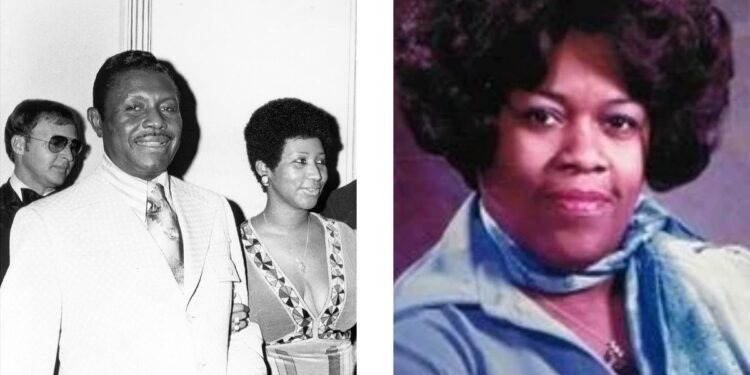When we talk about the American Civil Rights Movement, names like Martin Luther King Jr., Malcolm X, and Rosa Parks dominate the conversation. However, beneath these towering figures lie the untold stories of individuals who lived on the margins of that history—some by choice, others by circumstance. One such enigmatic figure is Carl Ellan Kelley. Her name might not appear in textbooks, yet her life story is deeply connected to one of the most revered voices in Black history—Dr. Martin Luther King Jr.—through his father, Reverend Martin Luther King Sr. The connection is quiet, complicated, and deeply human.
Carl Ellan Kelley represents more than a footnote in history; she is a symbol of the hidden legacies and complex realities of race, identity, and secrecy in America. Her story is not widely known, but it sheds light on familial relationships that were never fully acknowledged in public, yet remain essential to understanding the social fabric of the 20th century. In this article, we’ll explore the life of Carl Ellan Kelley in depth—her roots, rumored ancestry, personal life, and the greater significance of her story.
Quick Bio
| Field | Details |
| Full Name | Carl Ellan Kelley |
| Birth Year | 1929 |
| Death Year | 2005 (approximate, based on available records) |
| Alleged Parent | Rev. Martin Luther King Sr. (unconfirmed) |
| Possible Sibling | Martin Luther King Jr. (half-sibling, unconfirmed) |
| Occupation | Nurse |
| Known For | Alleged familial link to the King family |
| Ethnicity | African American |
| Public Recognition | Limited; not publicly acknowledged by the King family |
| Legacy | Symbol of hidden family histories and overlooked narratives |
| Place of Birth | United States (specific location unknown) |
The Background of Carl Ellan Kelley
Carl Ellan Kelley was born in 1929 in the segregated South—a place where being Black meant you had to fight for every right, every opportunity, and even your own identity. While most public records regarding Kelley are sparse, what makes her story particularly compelling is the claim that she may have been the biological daughter of Martin Luther King Sr., making her the half-sister of Martin Luther King Jr. This claim has never been officially confirmed by the King family, but several historical narratives, genealogy records, and oral testimonies suggest the possibility.
Growing up in the early 20th century as an African American woman came with its own set of challenges. For Carl, these challenges were compounded by the lack of official acknowledgment of her parentage. While most children of famous parents grow up in the spotlight or inherit a legacy, Carl Ellan Kelley lived a life away from it—perhaps by design, or perhaps due to the societal and familial pressures of the time.
A Family Connection Cloaked in Silence
The most compelling aspect of Carl Ellan Kelley’s story lies in her alleged connection to the King family. The rumors suggest that Carl was the result of an affair between Martin Luther King Sr. and a woman who was not his wife, Alberta Williams King. While this has never been officially confirmed, the whispers surrounding this potential relationship speak volumes about the hidden narratives of even the most revered families.
If true, it raises thought-provoking questions: What did it mean to be the unacknowledged child of a powerful preacher and civil rights leader? How did Carl Ellan Kelley reconcile her identity in a world that refused to fully recognize her heritage? And what does her story tell us about how society deals with unofficial narratives—especially when those narratives complicate heroic legacies?
This cloak of silence not only affected Carl’s life but also represents a broader tendency in American culture to ignore inconvenient truths in favor of clean, linear historical stories. Kelley’s life calls us to reexamine this tendency and open our eyes to the human stories that history often pushes aside.
Life in the Shadows of Greatness
If the claims about her lineage are accurate, Carl Ellan Kelley lived in the shadows of greatness. Being the daughter of Martin Luther King Sr., even unofficially, would mean her life paralleled one of the most prominent families in African American history. Yet, unlike her potential half-siblings, including Martin Luther King Jr., she did not grow up in the public eye or benefit from the privileges that often accompany such familial ties.
Instead, Carl led a private life, away from national attention, away from cameras, and likely away from the benefits of being part of a well-known family. There is no record of her ever being invited to King family events, nor is there evidence she sought the spotlight. Her life paints a picture of quiet dignity and resilience—a woman who forged her own identity despite being tethered to one of the most public figures in American history.
A Life Marked by Secrecy and Resilience
Despite the shadowy aspects of her lineage, Carl Ellan Kelley appears to have built a life marked by strength and self-determination. From the limited available records, it is believed that she worked as a nurse and dedicated her life to serving others. Her decision to lead a quiet life might have been a necessity, but it could also have been a conscious choice to step away from the controversy or scrutiny that might have come with her rumored heritage.
Carl’s story is also a testament to how many African American women of her era had to operate—with limited resources, under constant social pressure, and often burdened with family secrets. In many ways, her story represents countless untold stories of Black women who lived through Jim Crow, systemic discrimination, and racial inequality but never had their stories told.
A Hidden Legacy Worth Remembering
While Carl Ellan Kelley may never be officially recognized as part of the King family, her story holds value regardless of the truth of her parentage. She represents the overlooked individuals in American history—those whose lives were just as rich, complex, and deserving of remembrance as the celebrated heroes.
Her narrative prompts us to look deeper, to ask questions about whose stories get told and why. If nothing else, Carl’s story urges us to preserve and respect the lives of people who lived on the margins, whose existence was just as impactful in quieter ways. It also reminds us that legacies are not only shaped by public acts but also by quiet dignity and personal resilience.
What We Can Learn from Carl Ellan Kelley’s Life
In a world fascinated with fame and public recognition, Carl Ellan Kelley’s life teaches a different lesson. Her quiet existence, her strength in anonymity, and her dignity in the face of possible rejection show us that legacy is not always about being in the spotlight. Sometimes, it’s about how you carry yourself when no one is watching.
Her life also offers a valuable reminder that history is never complete. It’s an ever-evolving narrative shaped not just by the powerful, but also by the unheard. By learning about Carl, we give voice to those histories that have been pushed to the periphery and recognize the full scope of our shared past.
The Continuing Relevance of Carl Ellan Kelley’s Story
In today’s world, where conversations around race, identity, and legacy are as relevant as ever, Carl’s story is a powerful addition. It opens doors to deeper conversations about what it means to belong, to be acknowledged, and to carry an invisible history. Her name may not have made the headlines, but her story can influence the way we understand truth, silence, and dignity in American life.
Whether or not she was the daughter of Martin Luther King Sr., Carl Ellan Kelley has become a symbolic figure representing those whose histories have been muted. And by shedding light on her story today, we affirm that every life—especially the forgotten ones—deserves to be remembered.
The Power of Oral History and Genealogy
The story of Carl Ellan Kelley has gained traction largely due to the efforts of genealogists, historians, and community members who refuse to let forgotten stories stay buried. Oral history has played a key role in keeping Carl’s narrative alive, even in the absence of formal documentation.
Through these shared memories, conversations, and genealogical discoveries, a more complete picture of Carl Ellan Kelley has emerged—one that is rooted in both fact and folklore. This underscores the importance of preserving oral traditions, especially in African American communities where official records are often incomplete or inaccurate.
Final Thoughts
Ultimately, Carl Ellan Kelley is a name that deserves to be known—not because of who her father might have been, but because of the quiet strength with which she seemed to live her life. Her story is a poignant reminder of the many unsung heroes in our collective history—those who lived without validation, recognition, or applause, yet still lived meaningful, dignified lives.
As we continue to unearth and honor these hidden narratives, we must remember that every person has a story worth telling. Carl Ellan Kelley may never be a household name, but her life adds depth to the broader history of America, showing us that even the quietest lives can carry the loudest truths.
Frequently Asked Questions (FAQs)
1. Who was Carl Ellan Kelley?
- Carl Ellan Kelley was an African American woman born in 1929 who lived a quiet life, reportedly working as a nurse. She is rumored to be the unacknowledged daughter of Martin Luther King Sr., which would make her the half-sister of Martin Luther King Jr.
2. Was Carl Ellan Kelley related to Martin Luther King Jr.?
- While there is no official confirmation, some genealogical and oral sources claim that she may have been Martin Luther King Jr.’s half-sister through their father, Martin Luther King Sr.
3. Why is Carl Ellan Kelley not widely known?
- Carl Ellan Kelley lived a private life and was never publicly recognized by the King family. Her story has emerged through oral history and independent research, rather than mainstream media or public records.
4. What did Carl Ellan Kelley do for a living?
- According to available sources, Carl worked as a nurse, dedicating her life to helping others while remaining out of the public eye.
5. Why is her story significant?
- Carl Ellan Kelley’s story is important because it highlights the lives of individuals who exist outside the official narratives of history. It raises important questions about family, acknowledgment, and the complexities of legacy in American society.


















